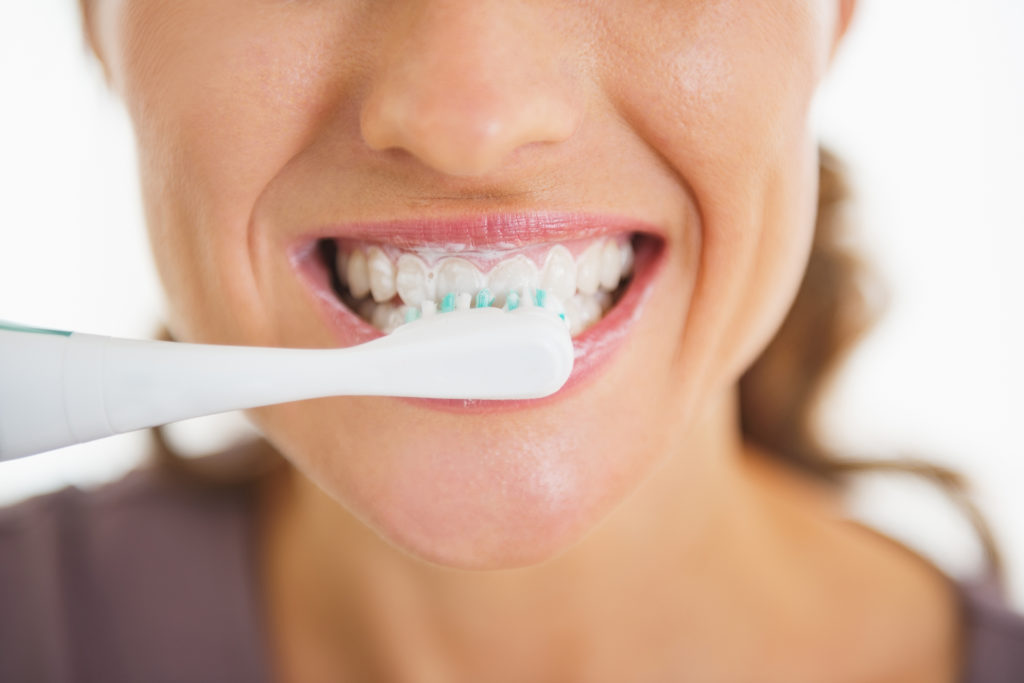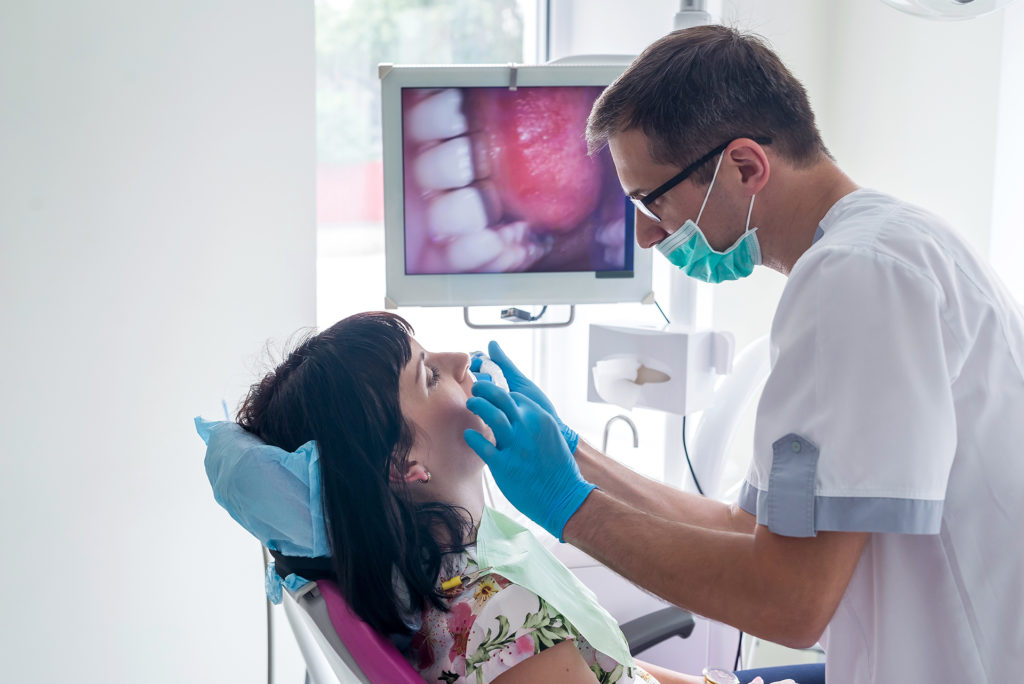Your Regular Dental Check Up Could Tell You More Than You Think!

With Oral Health Day fast approaching on 20th March, oral health expert and Gum Specialist, Dr Reena Wadia, Founder of RW Perio outlines 10 oral health signs that could indicate other health conditions and should not be ignored.
From dry mouth that could indicate diabetes, to mouth ulcers that could be a sign of Crohn’s disease, your regular dental and gum check ups can tell you more than you think!
1 Redness around the corners of the mouth
Redness or inflammation around the corners of the mouth with or without skin breakdown and crusting can be symptomless, itchy or painful. This commonly affects the elderly. It is thought that in about 25% of people, iron deficiency or deficiency of B vitamins are involved. Chronic iron deficiency can also cause a red shiny tongue.
2 Bleeding gums
Bleeding gums are not normal. Bleeding is like an alarm bell – it is a way of your body telling you that something isn’t quite right. We wouldn’t ignore bleeding from another part of our body, right? Bleeding gums after brushing or flossing is usually the first sign of gum disease, also known as periodontal disease or periodontitis. Periodontitis is the most common chronic inflammatory disease of humans, but unfortunately it is among the least acknowledged.The mouth is connected with the rest of the body and there is now lots of evidence which suggests links between gum disease and general health conditions, such as diabetes, heart disease and kidney disease. Very rarely, sudden and profuse bleeding gums can be a sign of a more serious disease such as leukaemia.
3 Big swollen gums
Medication often taken for high blood pressure, epilepsy or after a transplant can cause the gums to overgrow in the presence of plaque. Often it’s possible for your dentist or gum specialist to liaise with your GP to substitute the medication to something which doesn’t have such an unpleasant side effect. It’s important to address this as overgrown gums are difficult to clean, and this will increase your risk of gum disease.
4 Gum pigmentation
Gum colour varies from person to person and pigmentation of the gums is usually racial, it’s a bit like freckles on the skin. However, there are two general conditions where pigmentation of the gums is a key sign. Addison’s disease is a disorder which stops the adrenal glands from producing enough hormones and as this disease progresses, a person may experience pigmentation or darkening of the gums. Peutz-Jeghers syndrome is a genetic condition that can increase the risk of developing polyps or cancer. One of the early symptoms is the appearance of dark blue or dark brown freckles. These can appear on the mouth as well as on the skin of the fingers and toes.
5 Flat Teeth
Stress has a big impact on the body and it doesn’t miss out the mouth. Tooth-grinding, which can lead to worn down flat teeth, is often related to stress or anxiety. Most people who grind their teeth aren’t aware they’re doing it. It often happens during sleep or while concentrating or under stress. As well as flat teeth, this is often associated with headaches and jaw pain. If you are grinding in the night, your dentist may make you a mouthguard to help reduce this or at least prevent the damage caused by it.
6 Translucent shiny teeth
Translucent shiny teeth are usually due to ‘dental erosion’, which is caused by acid wearing away the enamel part of the tooth. The teeth can also start to chip and look more yellow. The acid can be from the diet but it can also be internal acid coming up from the stomach due to acid reflux. Your stomach produces natural acids that help your body digest food. Sometimes, these acids travel up the throat and into the mouth, especially after a large meal. Ordinarily, our saliva rebalances the acid levels in our mouth and everything’s fine. But for those who suffer from gastroesophageal reflux, also known as acid reflux or GERD, gastric acids reach the mouth throughout the day. About 5% to 10% of people with GERD develop Barrett’s oesophagus, which is where stomach acid causes precancerous changes in cells. The good news is that only 1% of people with Barrett’s oesophagus will get oesophageal cancer. Doctors can remove the abnormal cells when they diagnose you early on.
7 Mouth ulcers
Mouth ulcers are painful sores that appear in the mouth. They can be white, red, yellow or grey in colour and swollen. Stress and anxiety are a common trigger for many individuals. Mouth ulcers can sometimes be caused by certain medical conditions, such as: viral infections (including the cold sore virus), vitamin B12 or iron deficiency, Crohn’s disease, Coeliac disease, weakened immune system (e.g. due to HIV/AIDS or lupus) and Behçet’s disease.
8 White patches
White patches in the mouth are usually harmless and can be as a result of smoking, local irritants or oral thrush . However, on rare occasions, these white patches may be a sign of HIV or cancer.
9 Bad breath
Bad breath, also known as halitosis, affects one third of the population and concerns about halitosis are estimated to be the third most frequent reason for seeking dental care. The two most common causes of halitosis are a tongue coating and gum disease. However, sometimes halitosis may originate from other parts of the body and may be signs of another disease: a sweet, fruity odour can be a sign of ketoacidosis, an acute complication of diabetes, a fishy smell may indicate kidney disease, an acidic smell can be a sign of asthma or cystic fibrosis, a scent of ammonia can indicate kidney problems and a sweet, musty odour may signal liver cirrhosis.
10 Dry mouth
The main cause of dry mouth is dehydration. There are many different opinions on how much water you should be drinking every day. Health authorities commonly recommend around 2 litres a day. Another common reason for dry mouth is due to side effects from medications for general health conditions. Sometimes a dry mouth that doesn’t go away may be caused by a condition like diabetes or Sjögren’s syndrome.








